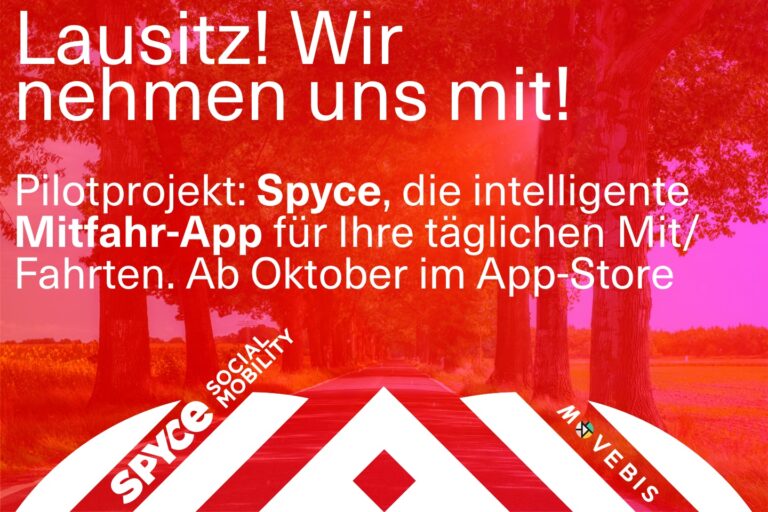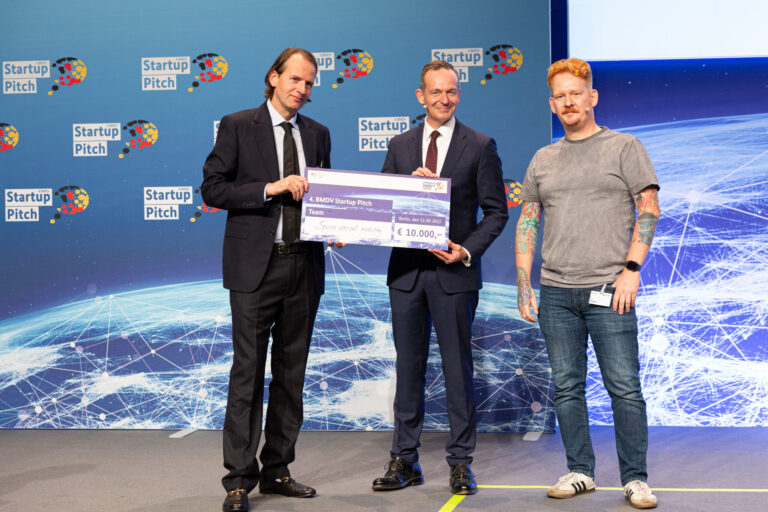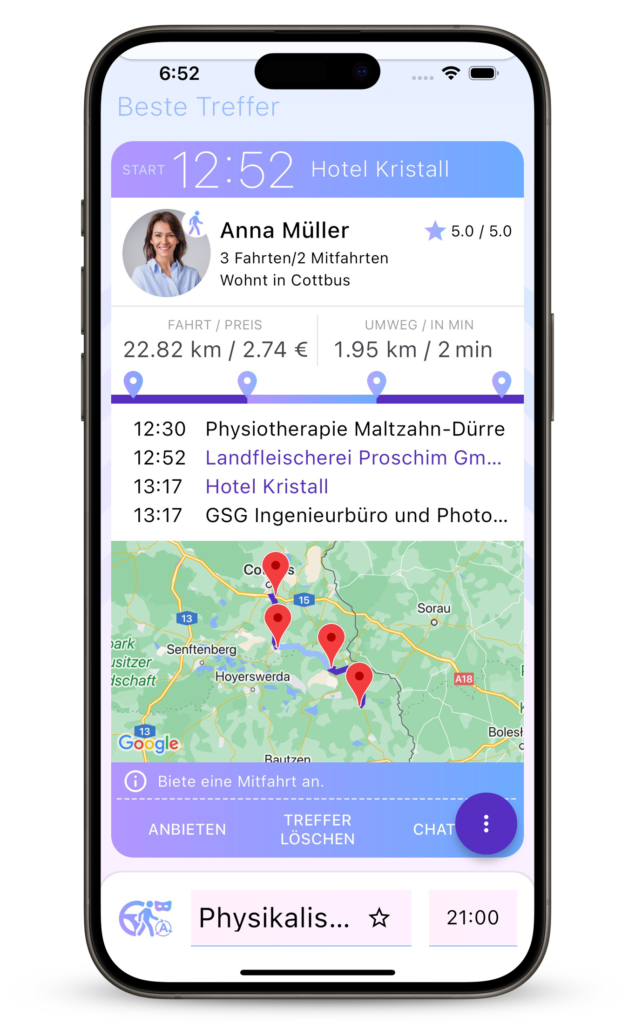
Spyce – social mobility revolutioniert das Mitfahren, macht es alltagstauglich, einfach und spontan. Denn Spyce lernt Dein Bewegungsprofil und macht Dir so automatisch und zum richtigen Zeitpunkt passende Angebote für Deine Mitfahrten!
Spyce Mitfahren ist für die alltägliche, spontane Mobilität konzipiert – egal ob Kurz– oder Langstrecke.


Spyce macht das Mitfahren so einfach und attraktiv wie noch nie. Kein Stress, alles läuft im Hintergrund und integriert sich so nahtlos in Deinen Alltag – egal, ob Du Fahrer oder Mitfahrer bist.
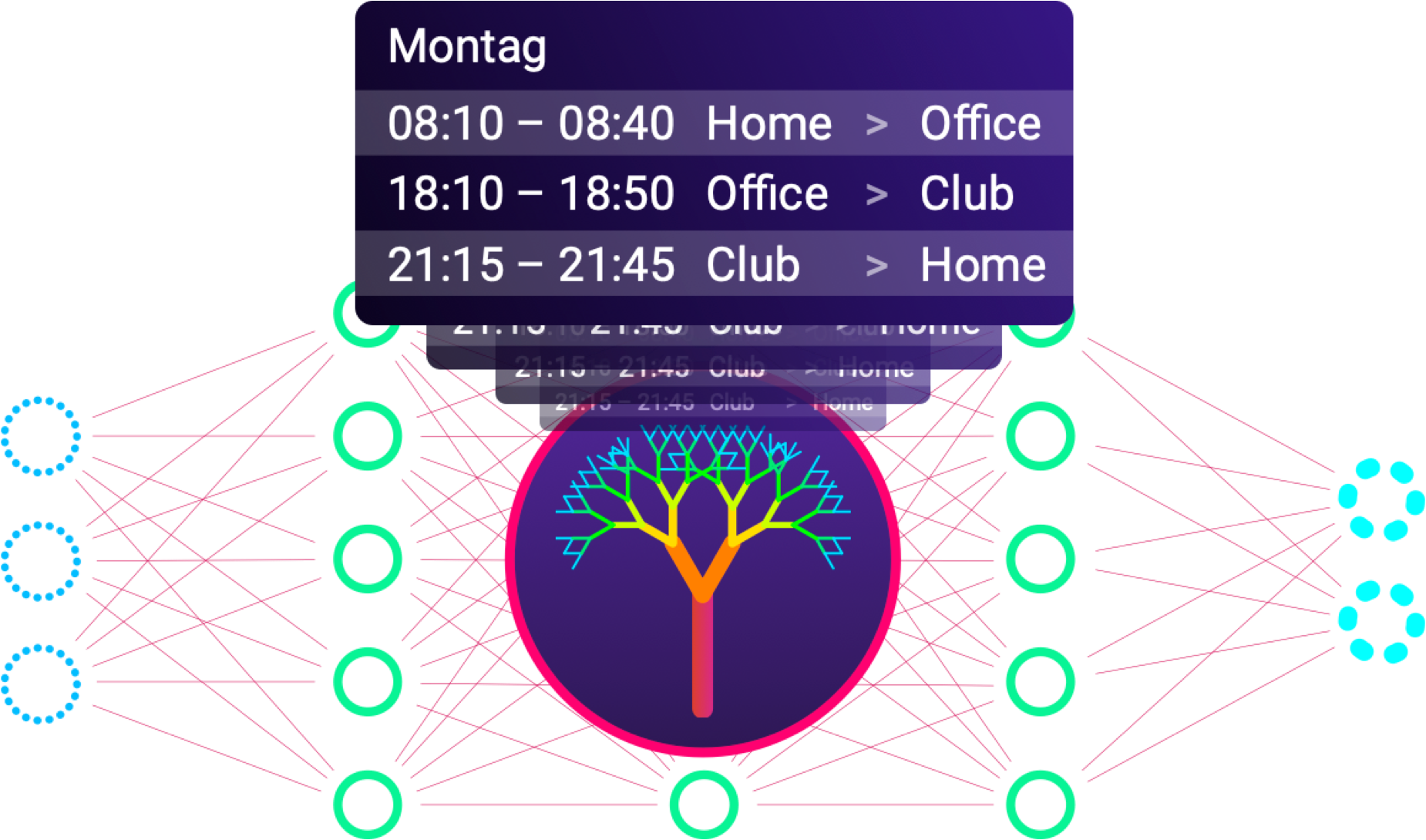
Nach dem Installieren erlernt die Spyce-KI nach wenigen Tagen Deine regelmäßigen Ziele und Abfahrtszeiten. Du kannst erlernte Orte in Deinen Favoriten speichern und Ihnen Namen geben wie Home, Büro oder Club.
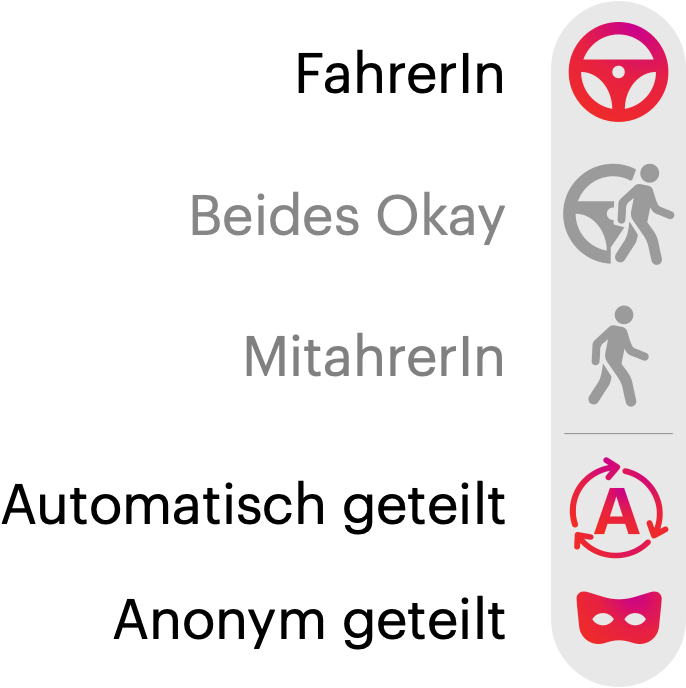
Du hast die Kontrolle! Du kannst regelmässige Fahrten automatisch Teilen und entscheiden, ob Du dabei den Inkognito Modus verwendest oder nicht. Und mit der Option „Beides Okay“ können Fahrer sich zurücklehnen und mitfahren.
Spyce sendet Dir Vorschläge für Mitfahrten. Passt der Vorschlag, kannst Du die Fahrt anfragen. Eure Profile inklusive Social Media Links werden dann für Euch sichtbar. So erfährst Du schon etwas über den Mitfahrer becor es los geht.

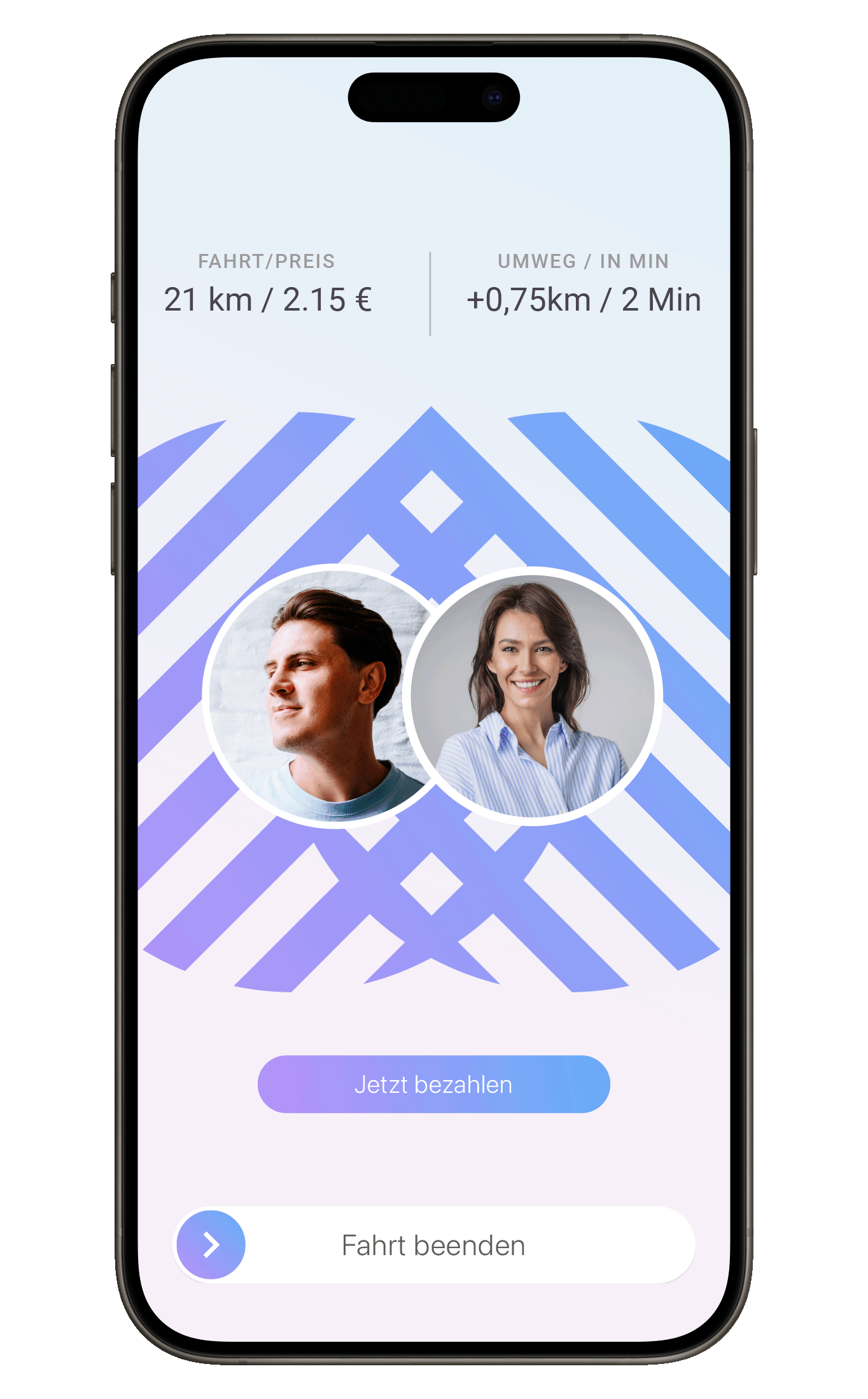
Ein Prinzip des Mitfahrens ist die Kostenbeteiligung durch den Mitfahrer. Dem liegt eine Pauschale in Höhe von 0,24 Cent pro km zu Grunde. Der Fahrer teilt also 50% seiner Fahrtkosten mit dem Mitfahrer.
Zuzüglich zu den geteilten Fahrkosten zahlt der Mitfahrer 0,30 € (inkl. Gebühr des Zahlungsanbieters) Transaktionsgebühr pro Fahrt an Spyce. Der Mitfahrer kann verschiedene Zahlungsmittel wählen.
Der Fahrer kann sich sein Guthaben ab einem Betrag von 10 € auszahlen.
Wir starten unser Pilotprojekt in der Lausitz im Oktober 2023. In den ersten Wochen bitten wir um Geduld bis alles perfekt läuft in und genügend Benutzer in Deiner Region mitmachen.


